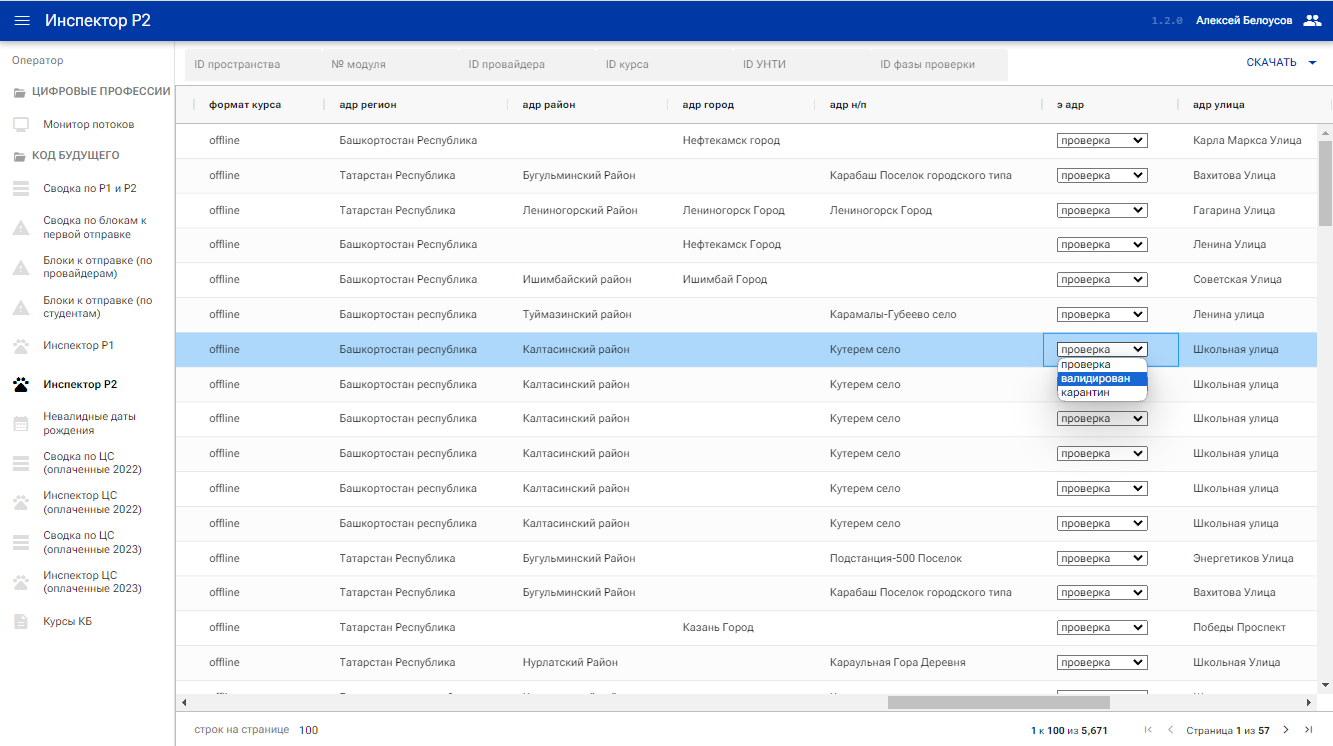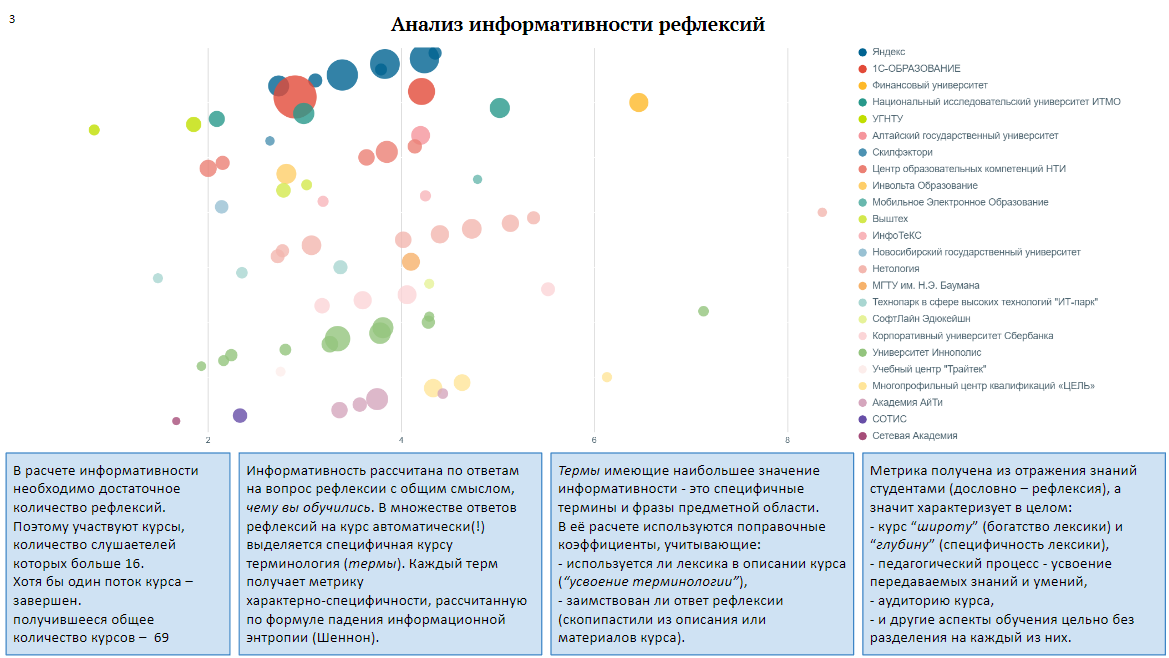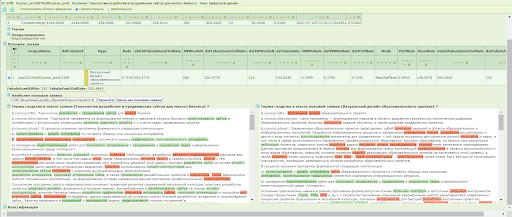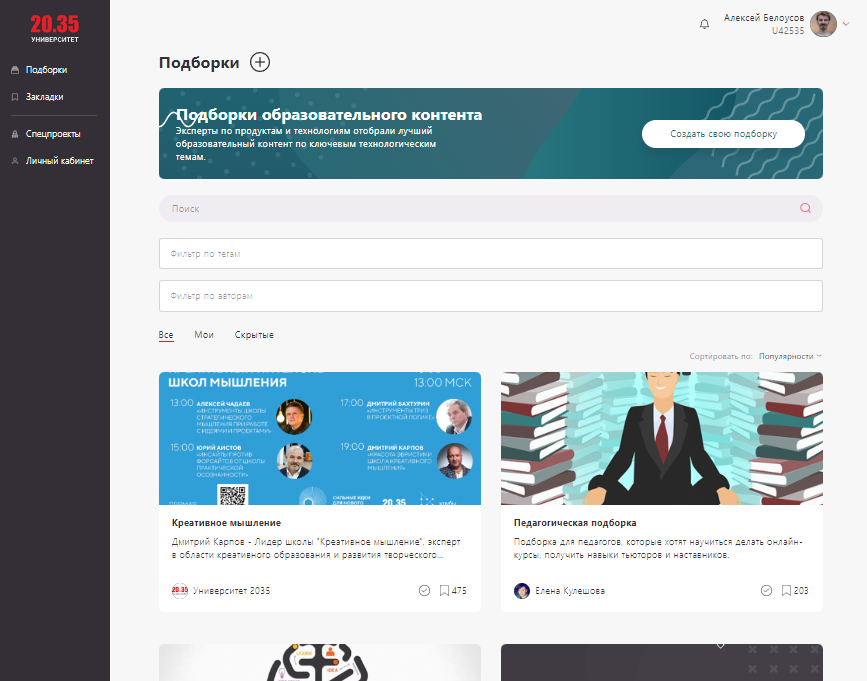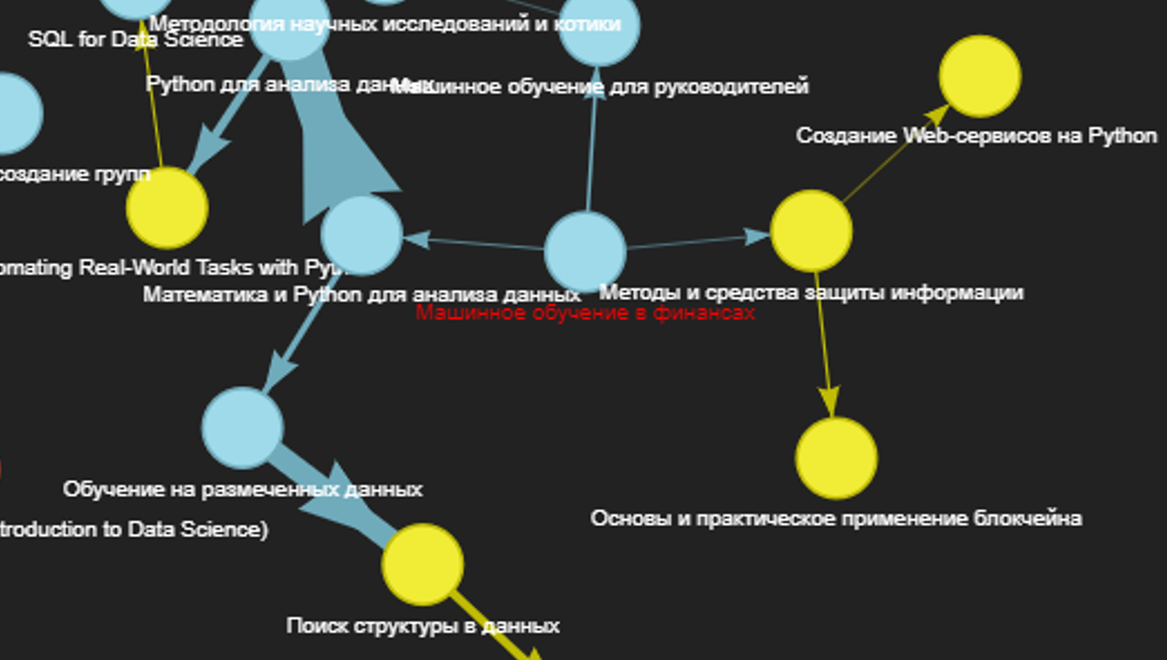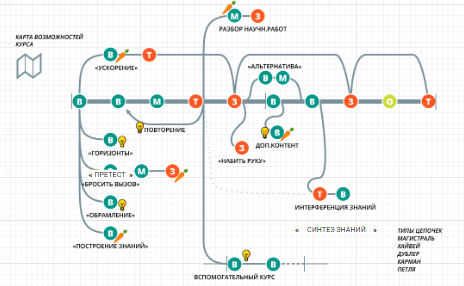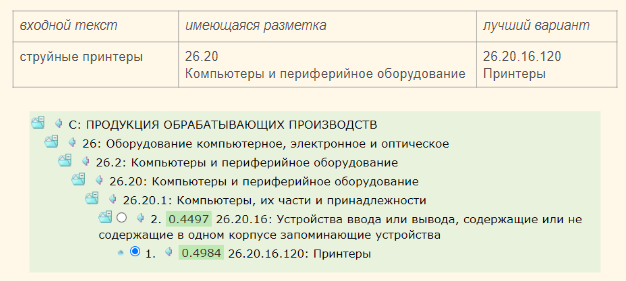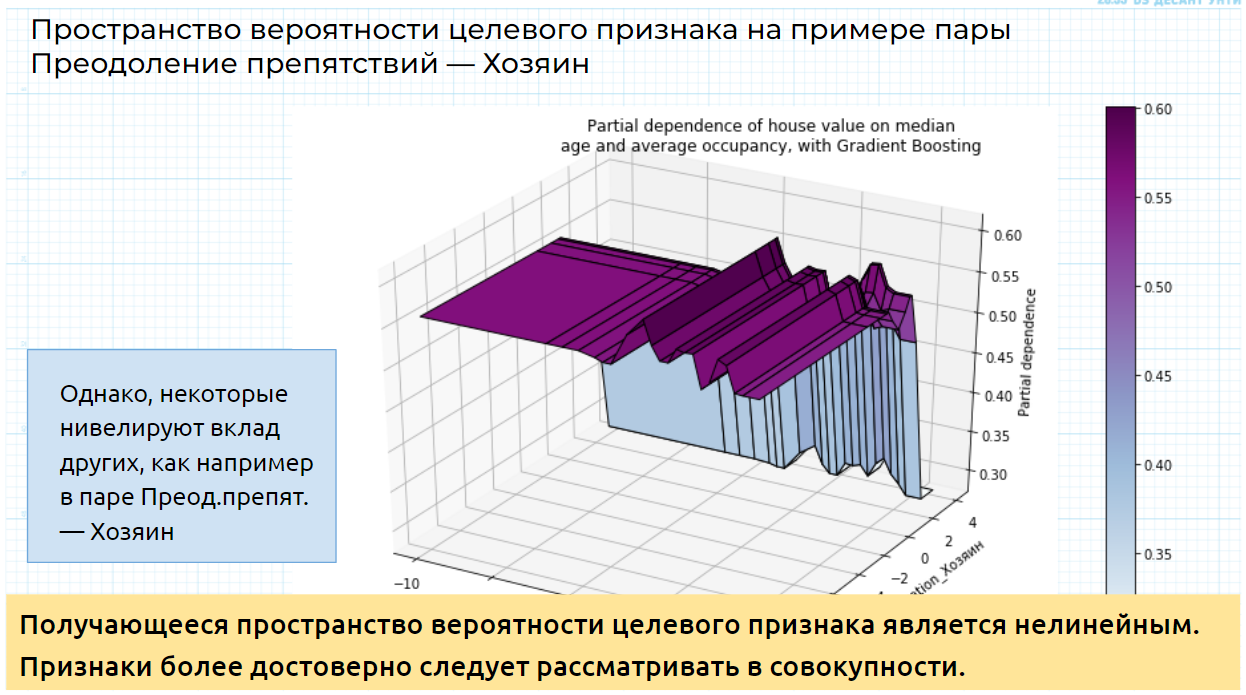Recommendation System based on a Hierarchical Directory
Challenge
Ensure recommendation algorithm accuracy surpasses the accuracy accounting for training dataset errors.
Solution
An operator dashboard has been implemented, enabling rapid data entry with suggestions for the best match from the hierarchical rubricator's categories.
The rubricator is based on the OKPD2 (Classification of Economic Activities) directory, which consists of 22,000 elements across 8 hierarchy levels.
The algorithm efficiently addresses challenges related to uneven granularity, duplication, homonymy, discrepancies in codes, seriality, batch processing, high-level categorization, and operator markup errors.
